The 20 Best Indie Games of the Decade
The last 10 years of indie games have been one hell of a ride.

Yes, it has indeed been an entire decade and what a ride it has been for indie games. This decade has seen this unique genre break out into the mainstream, bringing us an untold amount of fascinating and innovative games. Ultimately, that has left us with the monumental task of selecting what we think are the best. It wasn’t easy, but we’ve picked through the thousands of released games this decade to bring you our favourites.
20. Gone Home

One indie trend we saw take off towards the beginning of this decade was the walking simulator. Love ’em or hate ’em (and let’s not get into the ‘are walking simulators even games?’ debate), there’s no denying that they were influential and provided some memorable experiences for players. And arguably one of the strongest examples of the genre to date is Gone Home.
The introduction to Gone Home plays with your expectations. Arriving at your deserted old family home in the dark, a foreboding note warns you not to enter. It’s the perfect setup for a horror game, but rest assured that there are no jump scares here. Rather, you get to explore the house at your leisure, finding out just what’s happened while you’ve been away.
The reality is in fact rather tame – your sister falls in love with another girl and has to deal with the fallout from her school, homophobic family and the prospect of her new girlfriend going away on military service. It’s a touching story of the challenges of growing up and discovering your sexuality, told through letters, handwritten notes, tape recordings and other pieces of evidence scattered throughout the house.
19. Journey
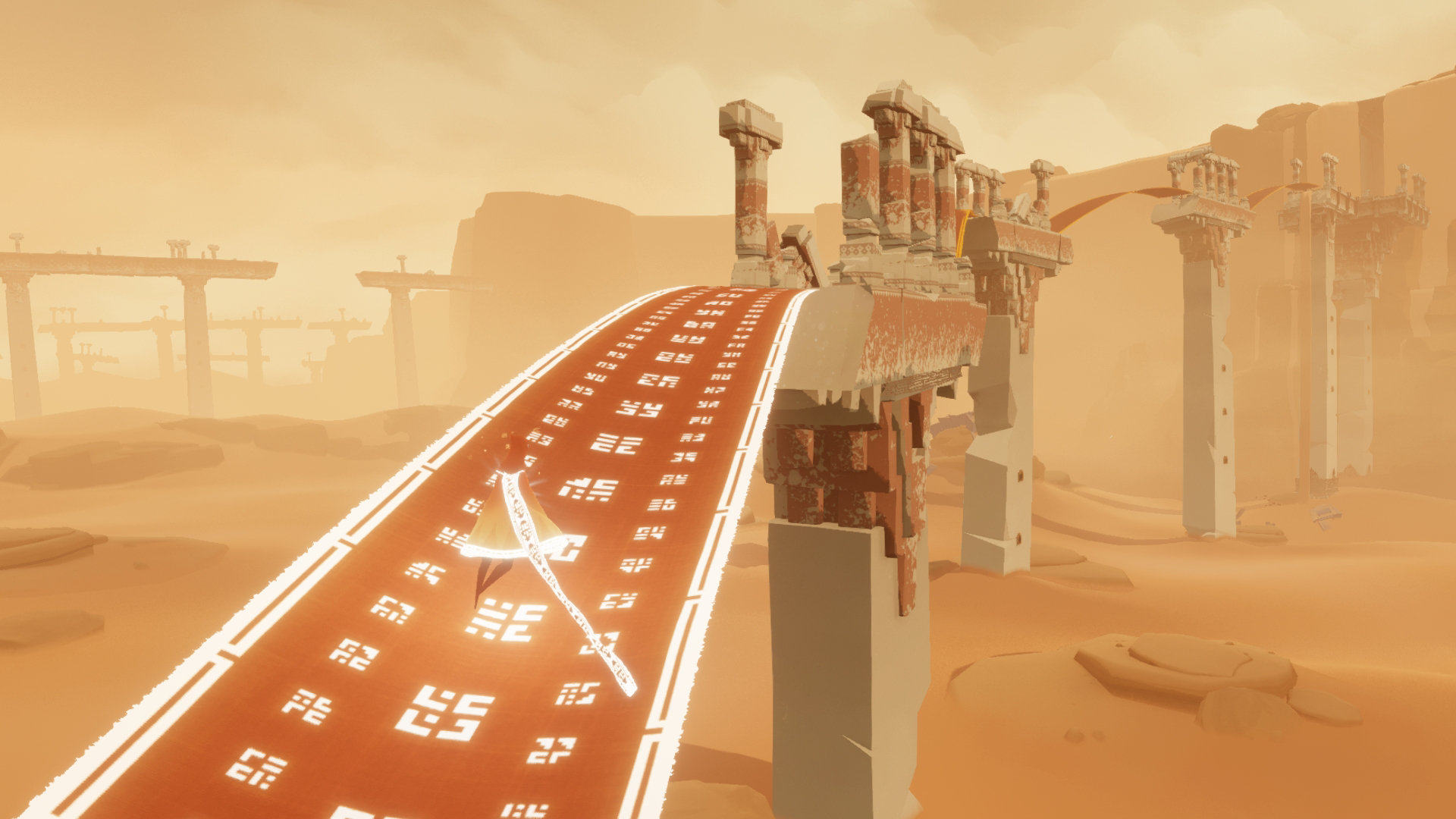
Journey holds a place on many people’s lists of their favourite indie games of all time, let alone just from this decade. For some players, it even got them into indie games in the first place. There’s something about this exquisitely beautiful and touching adventure that makes it unforgettable.
One of the main reasons for Journey’s beauty is its simplicity. You play an unnamed robed character, travelling through desert lands. There’s nothing in the way of explicit story or dialogue, just the shining beacon of a mountain that grows ever closer as you progress in your quest. Beyond walking, pretty much all you can do is jump and sing.
Despite this stripped-back approach, levels in Journey are interactive and immersive, with platforms to maneuver across and puzzles to solve. The visual and sound design are outstanding, solidifying a sense of place and conveying emotion. A stroke of genius also lies in its unique multiplayer component – you will often be joined by a fellow traveller who doesn’t directly impact your game but with whom it is possible to form a bond with nonetheless.
18. FTL
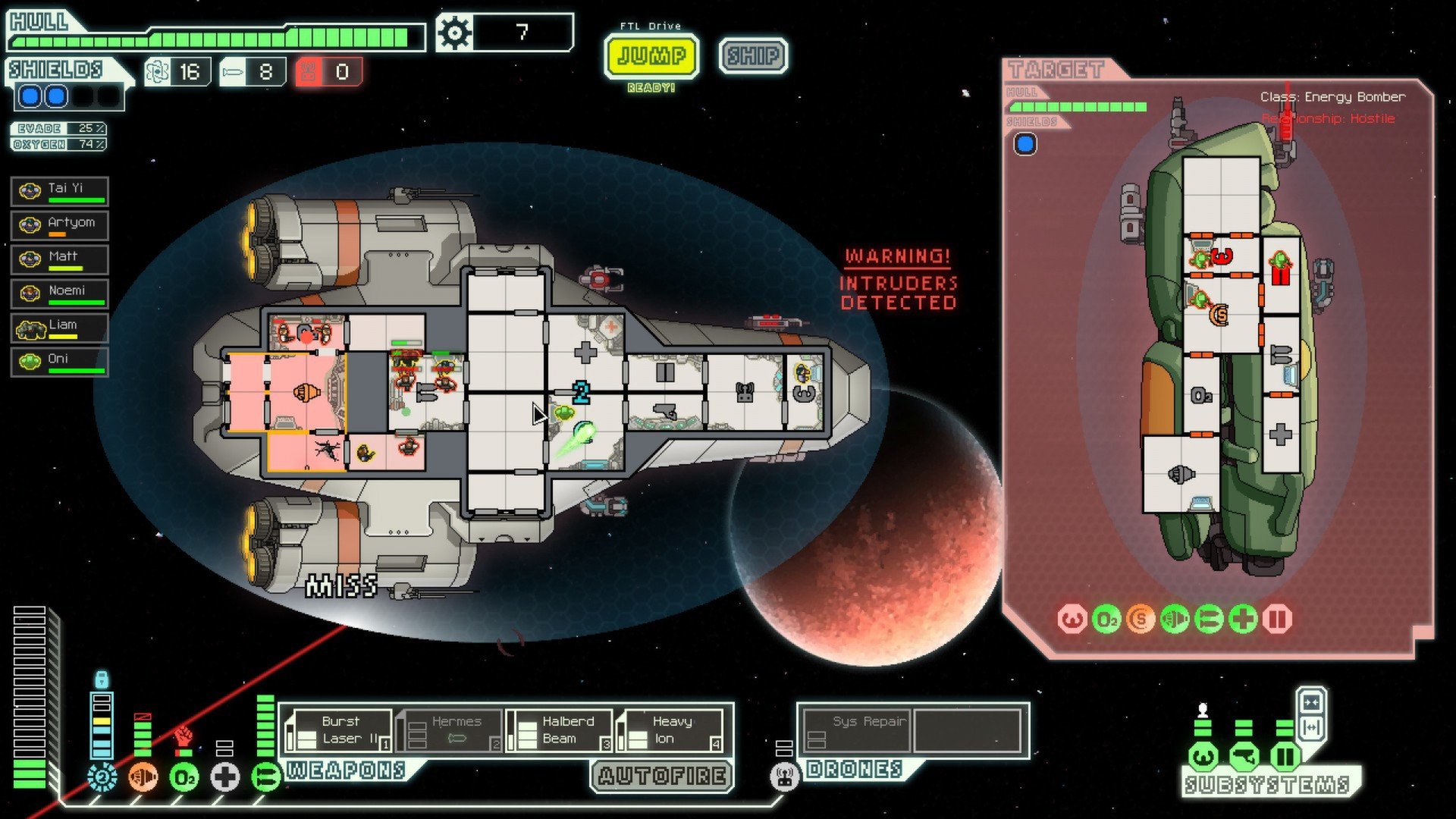
There’s a reason so many games are compared to FTL. It was a genre breakthrough in its own right and continues to pervade the inspirations of so many games to come after it. A strategic take on the top-down space combat mechanic of the arcade era, FTL took on far more than action players would have bargained for if they accidentally wandered into its territory. As you manage your individual ship, crew, navigation, and equipment, you’re tasked with taking on a xenophobic rebel fleet threatening the foundations of the Federation of which you are a part.
There’s a measured mixture of strategic thinking and classic space combat required of each player, a hybrid of two distinct genres that blend together to create an ebb and flow of action that works so well it’s been replicated time and time again. FTL set a new precedent for strategic roguelike development, making it easily one of the most influential indie games of the last decade.
17. Shovel Knight
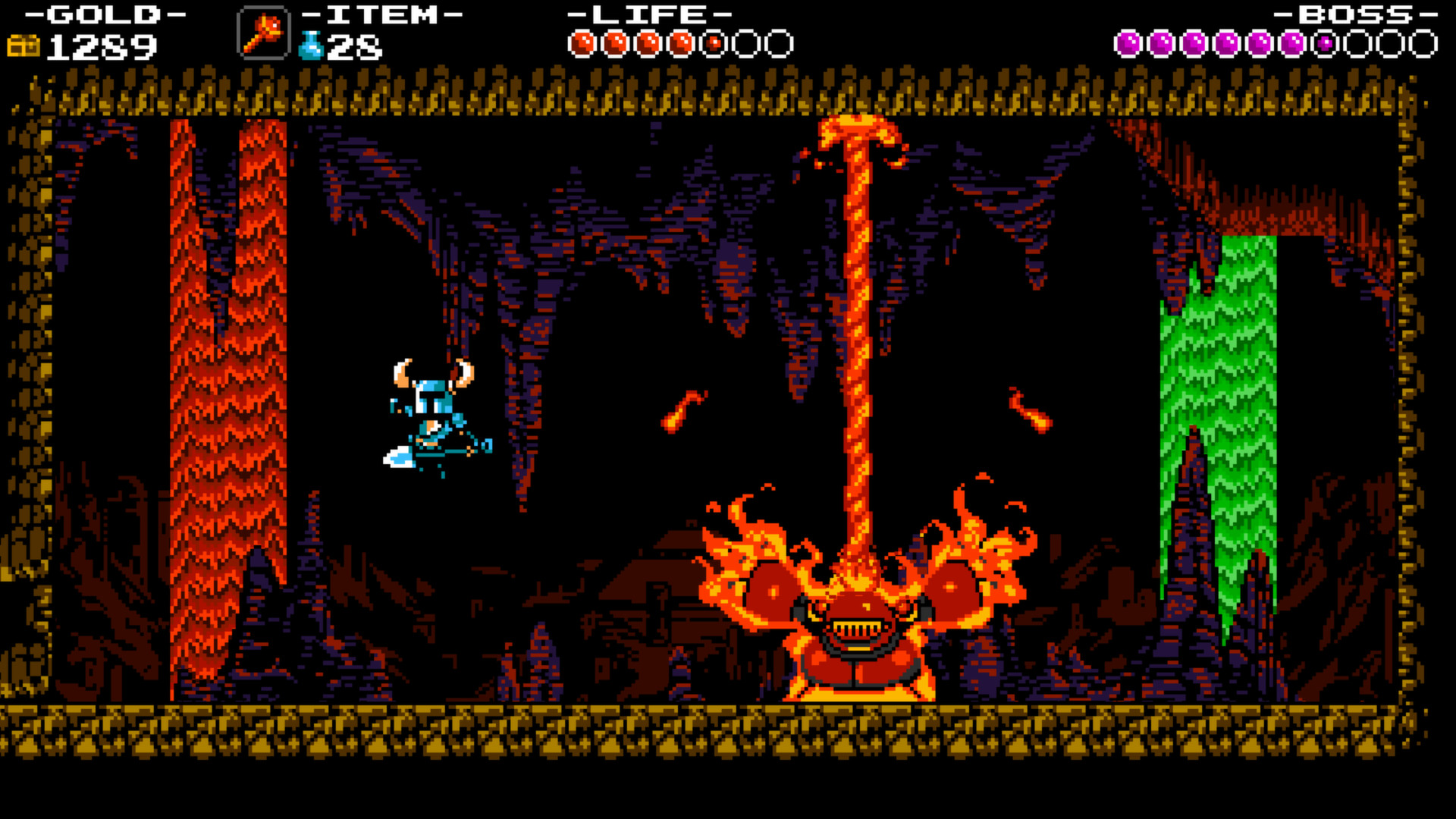
Shovel Knight was an instant classic that encapsulated everything that makes retro-styled pixel platformers great. Inspired by the iconic games of the past, its characters were unforgettable and its experience nostalgic yet polished in a way older games could only dream of. It took everything that made a classic Nintendo platformer and made it better in every way from the music to the boss battles, leaving us a new treasured mascot.
Originally released in 2014 following a successful Kickstarter, Shovel Knight has gone on to spawn five games across an epic saga telling the tale of the nefarious Order of No Quarter and their mysterious leader, The Enchantress. The iconic Shovel Knight is now himself only one part of a grander tale. No doubt we’ll be seeing more of this shovel-wielding sensation over the years to come as younger members of the gaming community are introduced to the greatness of the 8-bit era.
16. The Stanley Parable

One of the most self-aware and fourth-wall-breaking games to exist, The Stanley Parable is an unforgettable, experimental adventure that will last you a very enjoyable few short hours. Subverting the player’s expectations at every turn, for us to explain exactly what happens in The Stanley Parable would spoil things somewhat, so we can only recommend that you try it out for yourself.
In a nutshell, however, you play as Stanley exploring the office building you work in – but things aren’t exactly as they seem. Along the way in your strange misadventure, you’re treated to excellent, hilarious narration of your actions from Kevan Brighting.
The Stanley Parable is also notable for having one of the best demos for a game – rather than showing off a chunk of the actual game, it’s an entirely separate short experience that gives you a taster of what to expect. If you haven’t played the game yet, definitely check out its demo first! Excitingly, 2020 will bring The Stanley Parable: Ultra Deluxe, bringing the game to consoles and adding new content.
15. Undertale
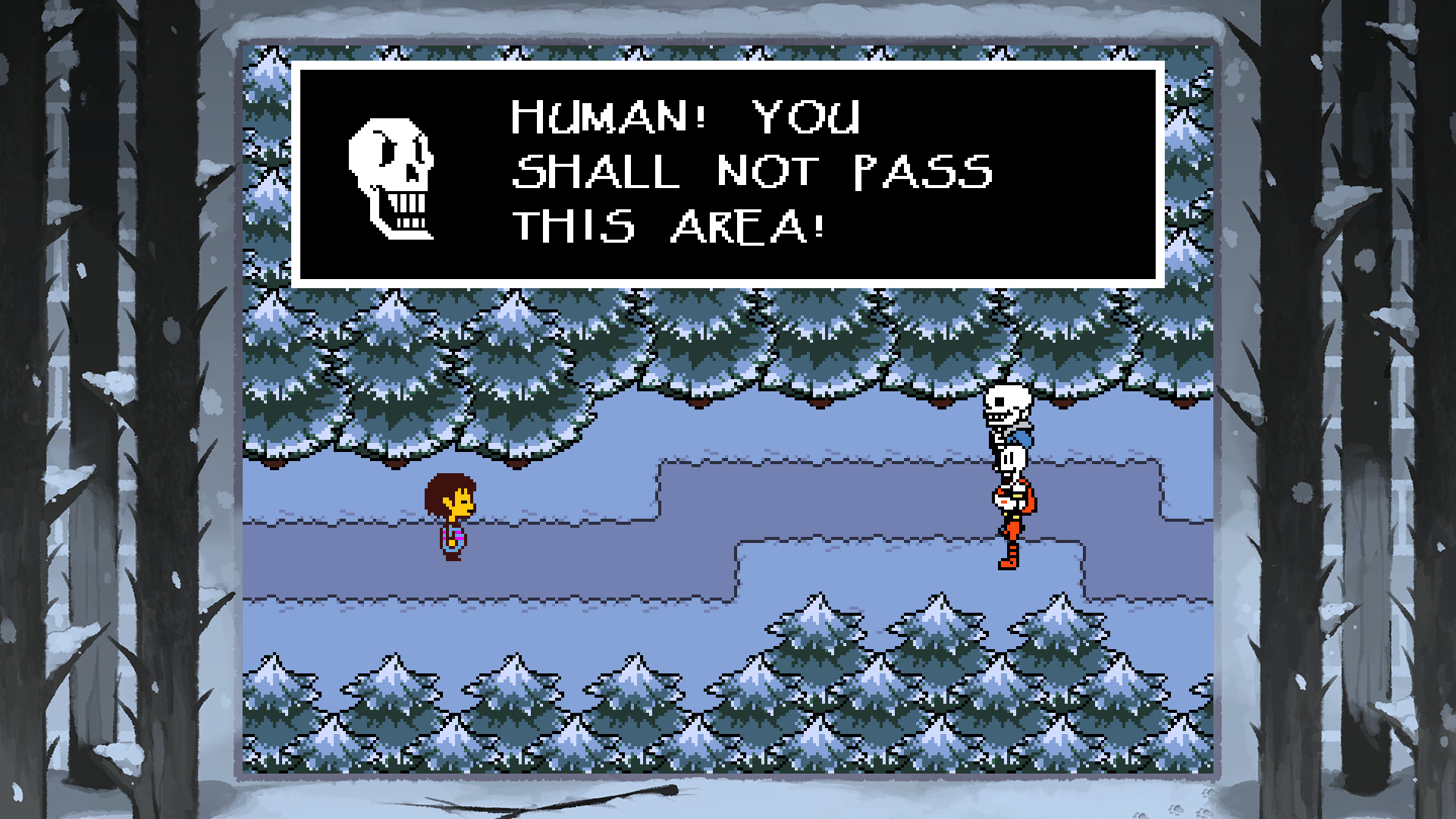
Toby Fox’s legendary RPG, Undertale, reminded us all what it means to be human. Lovingly crafted, this heart-warming tale of a human who fell into an underground world of monsters challenged the concept of what a video game should be and how it should be played.
Undertale’s characters crawl and worm their way into your life and heart, determined to make you care in a way games often don’t. Its clever design allows you to approach your adventure in a completely non-violent way, instead opting to talk through your problems. In Undertale your enemies want to get to know you and let you know how you choose to play affects them.
It’s hard to talk about Underatle without spoiling it, but rest assured this groundbreaking title set a new precedent for how players viewed indie games and their characters. It delved into the human attraction to fandoms by inadvertently creating one of the most passionate in itself. And with good reason – Undertale was creatively brilliant in every way.
14. Celeste
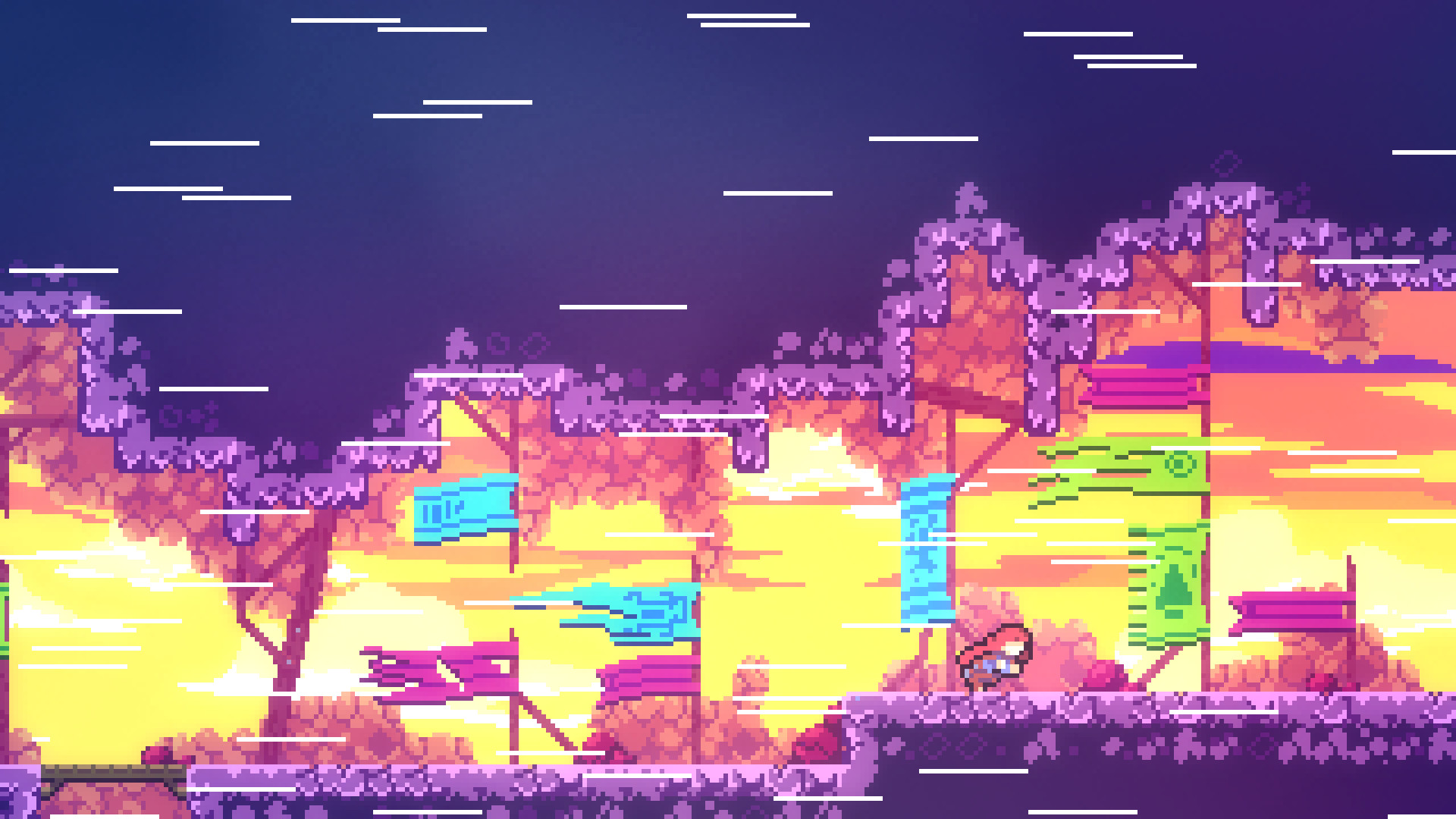
Celeste is arguably one of the finest pure platforming experiences of this decade, if not of all time. Like many indie projects eventually released to commercial success, it was originally conceived in a game jam in just four days (you can play this ‘Classic’ version here or as an Easter egg in the main game). Several years later, it was fully released on PC to critical acclaim.
Celeste is fairly simple in its mechanics, with the main crux of its platforming resting on the eight-directional double-jump (that later becomes a triple-jump). But its controls are so highly polished, playing it is an absolute joy despite the sometimes daunting difficulty. It’s demanding but never unfair, and it’s up to you how far you want to go – there are harder B-Side and C-Side levels, plus the free Farewell DLC adding even more challenges, but if this is out of your skill level then the main campaign is satisfying enough. There’s the generous addition of an Assist mode too, to help you out if you’re struggling.
Sealing the deal is some beautifully vivid pixel art, awesome soundtrack and a genuinely touching story about the protagonist, Madeline, battling her inner demons as she climbs up the mountain. It’s a must-play for platforming fans.
13. Firewatch

Firewatch subverted the generally accepted action-orientated approach to video game design and instead opted for a slow-burning complex narrative full of its fair share of twists. Set in Wyoming wilderness in 1989, Firewatch tells the story of Henry, a man looking to escape his messy life by escaping to the middle of nowhere.
Working as a forest fire watchman, it’s your job to look out for smoke in the isolated idyllic setting. Communicating over the radio with your supervisor, Deliah, you explore the environment uncovering strange and mysterious happenings unearthing a forgotten past.
It’s on this list for its storytelling and narrative brilliance. It so confidently built meaningful and deep characters within its limited resources it’s hard not to admire it. It captured something of nature and the people that inhabit it, something quiet and meaningful. In a place so quiet you only have inward reflection to keep you company, Firwatch explored that in the best possible way – through a gripping, well-paced, well-written narrative that you won’t forget in a hurry.
12. What Remains of Edith Finch

Winner of more awards then we care to remember, What Remains of Edith Finch has gone on to represent video games’ ability to tell complex stories and relate emotional responses many thought the genre incapable of.
Culminating a collection of strange tales about a Washington state family, this visually stunning game is one hell of a ride. Exploring the huge expanse of the dream-like Finch house, you drive into Edith’s family history as she tries to figure out why she’s the only one left alive. Flitting through memories from the distant past to the present day, it’s a twisting narrative not afraid to delve into the unknown.
It’s a strange and sad game that leaves a lasting impact. It speaks to the power of indie games and their ability to touch us in ways the triple-A market completely avoids – on a human level.
11. Nuclear Throne
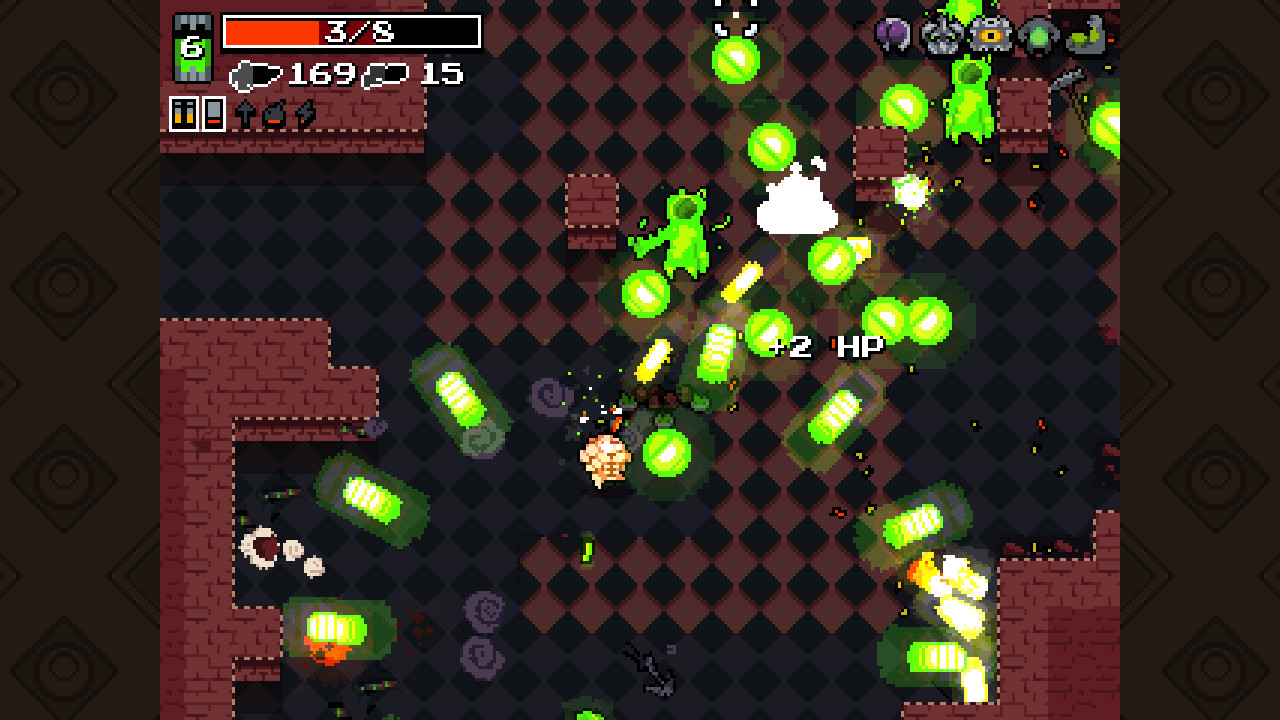
Top-down lightning speed action? Procedurally generated levels? Mutants? Thrones? It’s an indie dream come true, and that’s exactly what audiences from 2013 thought too. Vlambeer’s indie darling takes players on a raucous trip of weapon-slinging and permadeath raging, with an incredibly tight design that keeps everything beautifully balanced.
With indie names like Rami Ismail and Jan Willem Nijman behind it, it’s little wonder Nuclear Throne has been ported to a massive range of systems, with stellar reviews under its wing and a lifetime of fans waiting for its port to each new console.
Next up: Our Top Ten Games of the Decade
